Reasons Why Veterans Go Back to War
If you know members of the military, you'll take note a list of shared attributes and personality traits, but none is as picturesque of reasons why veterans go back to war than their keen perseverance.
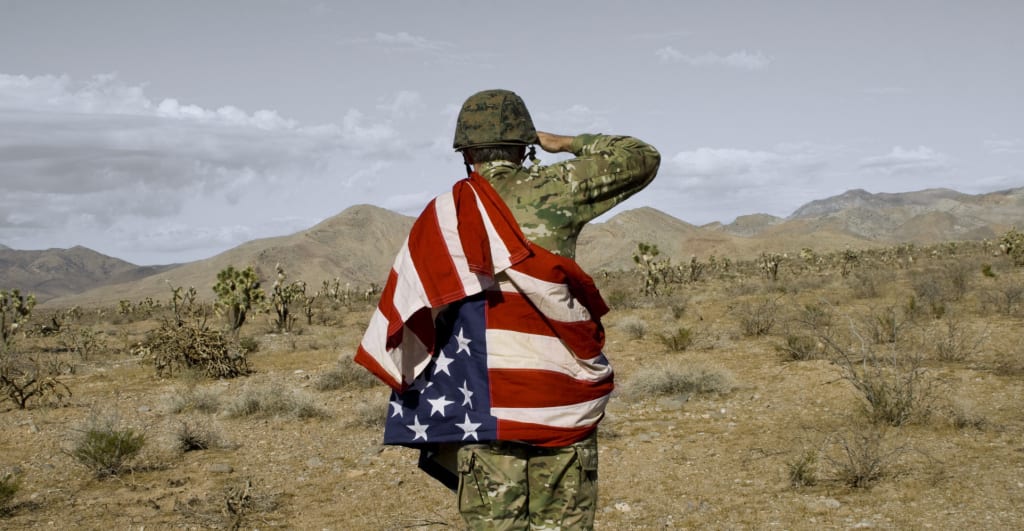
Do veterans really need to reason why they go back to war? Every single vet among the myriad of unsung heroes have experienced the battlefield in different ways, few ever returning as the same person they had left as. Eventually, as seen by caseloads of Vietnam veterans, combat and war itself are then interpreted more as a medium for psychological peace, escapism, or spiritual closure than anything else. If you're not a service member yourself, imagine being sent overseas with a group of your most valued friendships, only to see much and more in the form of degradation, painful loss, and horrors with unimaginable dimensions. Found within the deepest bowels of every service member is the courage to not only face these evils again and again, but to stamp them out in their every added rendition, which is probably the best you'll get in the form of reasons why veterans go back to war.
Aside from metaphysical preferences, members of the military live and breathe war as if it were a delicatessen (which, to them, I assume it actually is). In any case, the variety of veterans who carry on the fight and return to war without fear or worry are the ones deserving of the most awards and accolades as can be given. Whether or not they actually do utilize these following emotions remains to be seen, as this is only speculative in nature, but don't take that the wrong way. Combat veterans and war zones simply go hand in hand, as sad as it is to relate, which only means that at the end of the day, war and the heart of conflict is what brings life to veterans in a time of utmost necessity. Whether in your attempt to unlock the secrets of a family member's astounding military history, or to simply research the ways in which the military seemingly institutes a continuation of conflict, these are only but a few reasons why veterans go back to war, even though only the individual combatant can answer that question in complete fact and truth.
At the core of every single one of these following reasons is the utterly simplistic takeaway in "the way of the warrior," for which only active military personnel and veterans can accurately describe. In their heart is a mixture of patriotism, love of family, firm emotional balance, committed service, and the want for a protected United States, but in their minds a rifling of mismatched thoughts, most of which tends to be drawn up by superiors rather than themselves.
To better understand the reasons why veterans go back to war, I suggest reading the entrancing accounts and information catalogued by Charles Hoge in his Once a Warrior—Always a Warrior. It systematically posits pretty much every deeper point behind the quintessential veteran's mind upon returning home from battle. This is an essential resource I recommend to all of those interested in developing clearer paths for veterans to better situate themselves into daily life after their initial terms have been met. As outlined by the book, while still keeping every following reason on the back-burner, the return back to war made by veterans is simply a military service, a task by which only the combatant in question can amend, and so as his duty calls fro, he or she steps up in every instance to reinstitute peace and order.
For Purely Patriotism
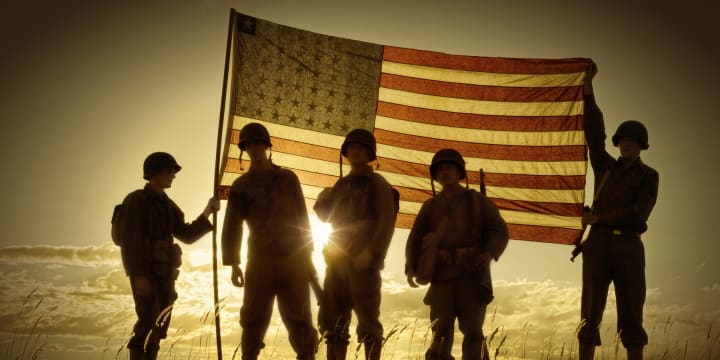
It's the most obvious and straightforward reasons why veterans go back to war, they all simply share in an obsessive commitment to protecting American interests and civilians in any capacity possible. As such, continuing the fight well above and beyond the natural order of things is a necessary attribute every service member will portray, and hopefully outlive, as well.
Nationalist sentiment may do well in acting as a protective force, both spiritually and physically, of those more dangerous and destructive exterior evils alone, but veterans also feel a deep sense of purpose and commitment for pushing themselves to limits unfound in the defense of our great country.
For Uplifting Financial Status
While there might be thousands of reasons why people join up in the first place, there's also a similar berth of reasons why veterans go back to war, as well, and one of them has to do with military officers' general lack of funds. Even less selfless are those service members who take up arms not solely to protect our great nation, but to also limit hidden economic struggles of military spouses.
More often than not, enlistment is usually directly linked to a person's lack in higher schooling, economic resources, or both. For that, veterans will continue the fight much like why you continue your own fight each and every morning with yourself when waking up for work; you simply need the money. There's also plenty of varied bonuses attached to extended stays or continued military service, which makes for a hefty lump sum upon the completion of one's active duty.
For an Indistinguishable Homeland
Rejoining the human race is no simple task for veterans and service members alike. It's actually one of the most debilitating and often destructive qualities inherent in the military, but there's various ways around this; most easy of which being among reasons why veterans go back to war, so as to curtail their returning home. This has been an ongoing issue still even to this day, as there are few beneficial organizations attempting to curtail US military veterans' difficult transitions back to civilian life.
Sounds counterintuitive, but in all effect it's most probable when assuming why veterans love the battlefield so much. Civilian life isn't always a good fit, or simply the same once you return from combat. In even less cases, service members (those especially troubled) will almost equate the battlefield with that of civilian life, and normalcy has seemingly become a host of bloodshed and violence, rather than peace and love.
For Brotherhood & Comradeship
Some veterans may have either lost friends in the war, or simply feel the need to broaden these connections rather than return from combat. It's much like being in a fraternity, only you're also pitted with a variety of life and death situations, the likes of which many have and never will experience. These shared uncommon events are what shape a military officer's overall mental stability; brotherhood, friendship and camaraderie therefore being among reasons why veterans go back to war.
To that end, only a true blue military officer knows the deeper and interweaved concepts inherent in military comradeship. Despite the fact that it's pretty much common knowledge how cross-relations between military branches is seemingly nonexistent, there's still a deeper level of connectivity and brotherhood for all men and women who serve, regardless of class, race, or military sector.
For the Militarily Family Minded
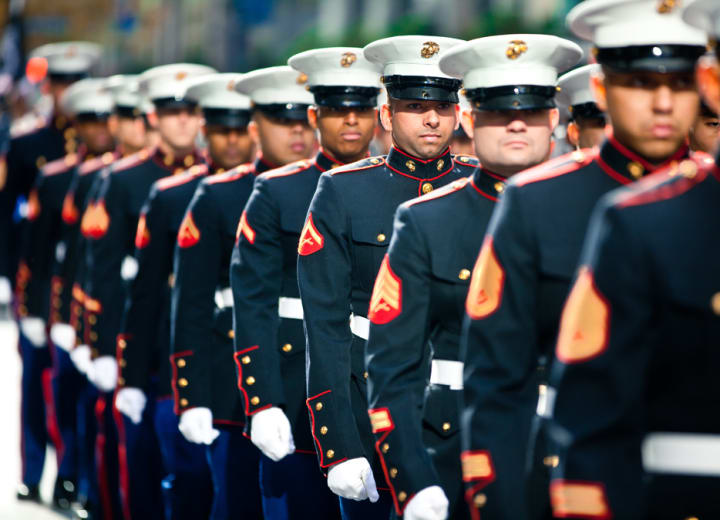
This is probably most popular among service members and veterans worldwide, for the most ample of reasons why one enlists into battle in the first place is due to kin or family members having been in, or still in active military duty. Even for myself, having a father, uncle, grandfather and more partake in a variety of international scruples from the past, family-minded war entrances should not a disputed factor among the reasons why veterans go back to war.
If anything, having family from or still in the military only makes your relationship with both war and duty that much more ingrained. While I may not have ever joined the Marines like I had aspired so long ago, the reality of military duty and service in the protection of this great country only makes me the more jealous and shameful for not enlisting at least under four years, or so.
For the Odyssey
It may seem farfetched, but in fact many enlistees join the military for the journey and adventure all in the first place. It's not uncommon to see some war veterans and combat junkies care little for the overall state at which their home may be, since constant, nonstop adventure rests solely on their horizons.
It's an unfortunate factor among the various reasons why veterans go back to war, since there isn't much one can do to stop them or talk them out of it (which, pretty much, is in impossibility in any situation involving the militarily minded). Junkies who love nothing more than the vast odyssey inherent in the return to combat make for some of the best aspects of a militia, for they're always prepared and willing to take any step needed in conducting any sort of military endeavor.
For the Rush
Likewise, there's always active duty members who adore nothing more than the received adrenaline rushes found only in the midst of a blood soaked battlefield. These, again, are veterans who show ample amounts of bravery and courage even in the face of the most hellish conditions, willing to take their love for adrenaline to the ends of the earth, and back again if need be.
It may not be as popular as other reasons why veterans go back to war, but it still highlights one of many avenues through which a typical service member may see war, or define combat on an individualistic level. I doubt any veteran would ever admit it, but I'm sure there's a bit of this mentality in all of them, for if not they may never have been able to join their particular war efforts from the start. It takes immense courage and considerable willpower to enlist oneself among the fray of war, but you come to recognize yourself far better in its concluding segments.
For Counterterrorism
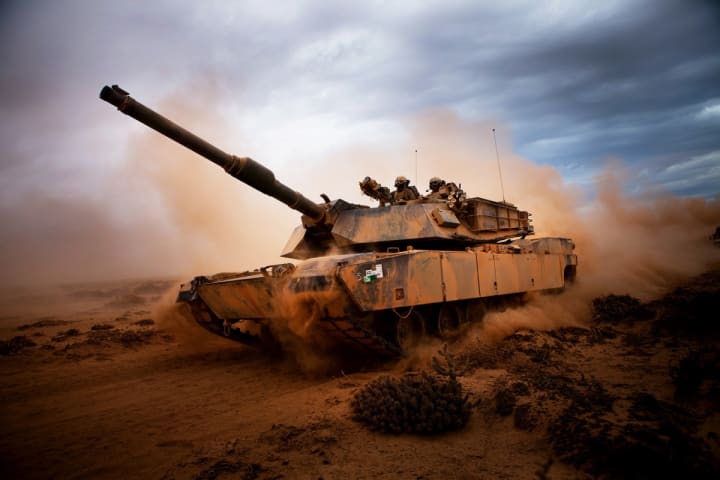
In the wake of those horrifying September, 11th attacks that devastated the country into a burning silence and eventually sent us packing for more than vengeance, an unruly amount of enlistments took place following those initial weeks of despair. Though not one of these enlistees knew where the attack had originated from, why it had even occurred, and who had ultimately carried it out, they still went headlong into the dragon's lair or hornet's nest, if you will, without any semblance of fear or reluctance in their decisions.
As such, active duty and veteran military personnel took it upon themselves to not just implement justice, but to take a considerable strike at the overall continuity of terrorist activity. This under-the-surface point in the reasons why veterans go back to war may actually be their most codifying feature yet, as counterterrorism is, for many reasons, a necessity in disassembling the vast array of negatively-situated powers all across the world, most of which rule tyrannically in areas much less forgotten, or ignored. Veterans, on the other hand, forgotten very little.
For Proving Oneself
Sad as it may sound, one of the reasons why veterans go back to war is simply to prove they are of integrated firmness and capable of outliving and defeating any and all enemies so envisioned. It's among the less foolproof of reasons, but is still relatively popular in gauging a veteran's necessitating for their return to the clutches of war.
Whether it's in the face of negligent family members, fellow service members, or even self-actualized detriment, a veteran's want for returning to war can greatly mean their own need to bolster worthiness, courage and their ultimate value in the war front. Are you brave enough? Are you acutely strategical? Can you outperform all the rest without a single hiccup or sign of fatigue? These are only but a few concepts a veteran may face in the considerations for their role in the war. Almost every military officer wants to be upheld by history, and their defiance to outright quitting even in the face of age is the best way they can prove themselves as worthy for remembrance.
Post Traumatic Stress Disorder
Often simplified to PTSD, post traumatic stress disorder is probably the leading most example under the reasons why veterans go back to war; simply put, they know nothing else. PTSD comes about in practically every service member who's been through an ungodly amount of perilous instances and near death experiences, leaving the particular service member in a state of constant confusion, terror and disillusionment for which there is little in the form of aid.
I kept this one for last, because it's the most devastatingly heartbreaking of all these reasonings, and must be examined deeper for the conceptualization of many more foolproof treatments. The only way PTSD can be amended is through considerable outreach and consistent research, but if you know someone who is struggling with it, the best thing you can do for them is be there at every turn (and no matter what happens, for PTSD is known to bequeath a range of uncharacteristic behaviors).
About the Creator
Gerald Oppugne
I have no idea why I'm here, but let's make the best of it shall we? I like to drink and smoke, so I'll keep you up to date on those worlds if you like em as much as me.



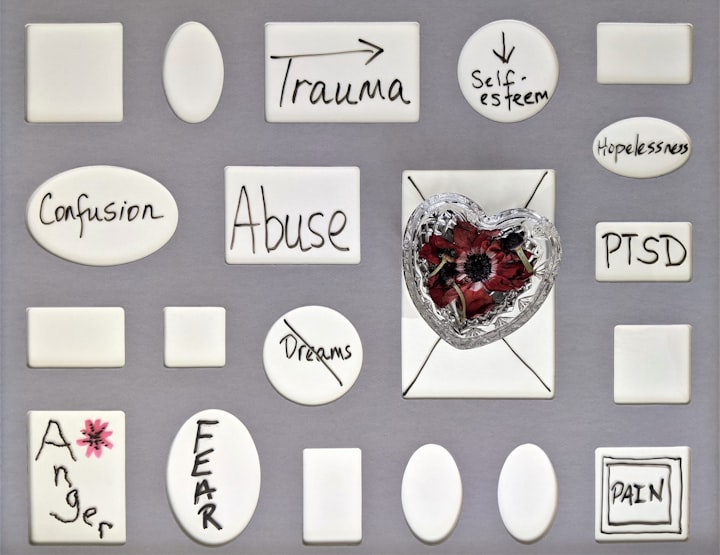
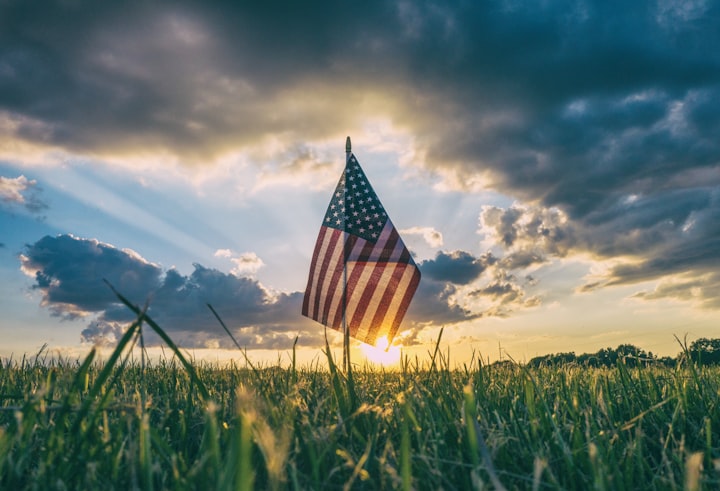

Comments
There are no comments for this story
Be the first to respond and start the conversation.